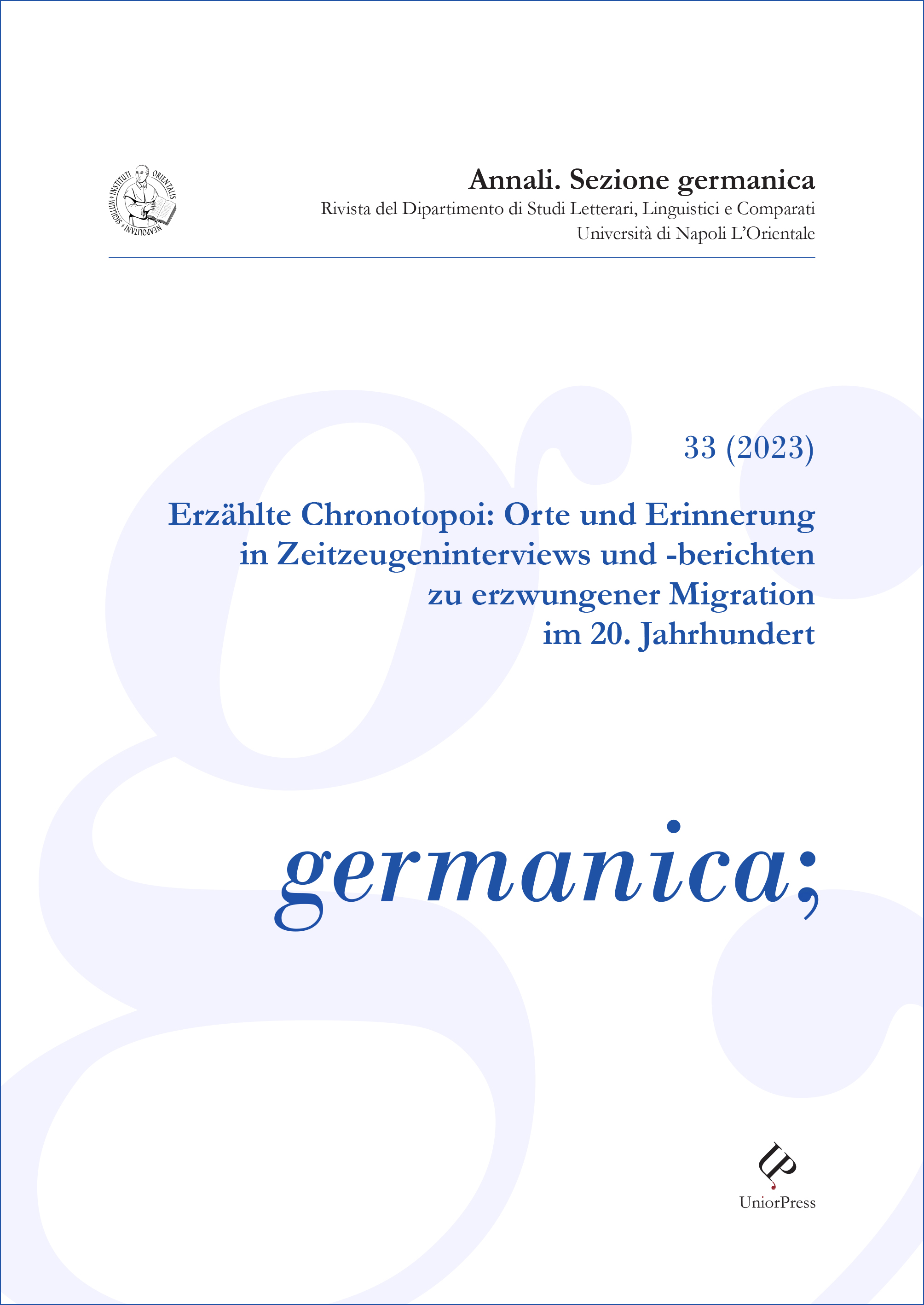La negoziazione di luoghi e conoscenza nel processo narrativo
DOI:
https://doi.org/10.6093/germanica.v0i33.10751Schlagworte:
analisi conversazionale del tedesco, negoziazione della conoscenza, processo narrativo, interviste biografico-narrative, analisi dei corporaAbstract
Questo contributo prende in esame, dalla prospettiva dell’analisi conversazionale, i diversi formati delle sequenze esplicative utili per la condivisione della conoscenza dei luoghi e del sapere nel contesto di interviste narrative autobiografiche. L’analisi è svolta a partire dal materiale del corpus Fluchtgeschichten aus Ostpreußen (FGOP), messo a confronto con esempi da interviste dell’Israelkorpus (IS); entrambi i corpora appartengono infatti alla memoria linguistica della storia del XX secolo in Europa. Dall’analisi dei dati emerge che nel processo di costruzione discorsiva dei luoghi e del sapere le spiegazioni assumono un ruolo importante e risultano fondamentali per indagare anche la costruzione dell’identità nella conversazione. Seguendo il metodo dell’analisi conversazionale, l’articolo focalizza le sequenze che contengono un potenziale esplicativo e le mette in relazione con fattori interni ed esterni dell’intervista, come ad esempio il formato, il livello di famigliarità e di conoscenza tra i partecipanti, gli stili individuali e l’identità dei parlanti.
Downloads
Veröffentlicht
Zitationsvorschlag
Ausgabe
Rubrik
Lizenz
Gli autori che pubblicano su questa rivista accettano le seguenti condizioni:
- Gli autori mantengono i diritti sulla loro opera e cedono alla rivista il diritto di prima pubblicazione dell'opera, contemporaneamente licenziata sotto una Licenza Creative Commons che permette ad altri di condividere l'opera indicando la paternità intellettuale e la prima pubblicazione su questa rivista.
- Gli autori possono aderire ad altri accordi di licenza non esclusiva per la distribuzione della versione dell'opera pubblicata (es. depositarla in un archivio istituzionale o pubblicarla in una monografia), a patto di indicare che la prima pubblicazione è avvenuta su questa rivista.
- Gli autori possono diffondere la loro opera online (es. in repository istituzionali o nel loro sito web) prima e durante il processo di submission, poiché può portare a scambi produttivi e aumentare le citazioni dell'opera pubblicata (Vedi The Effect of Open Access).


